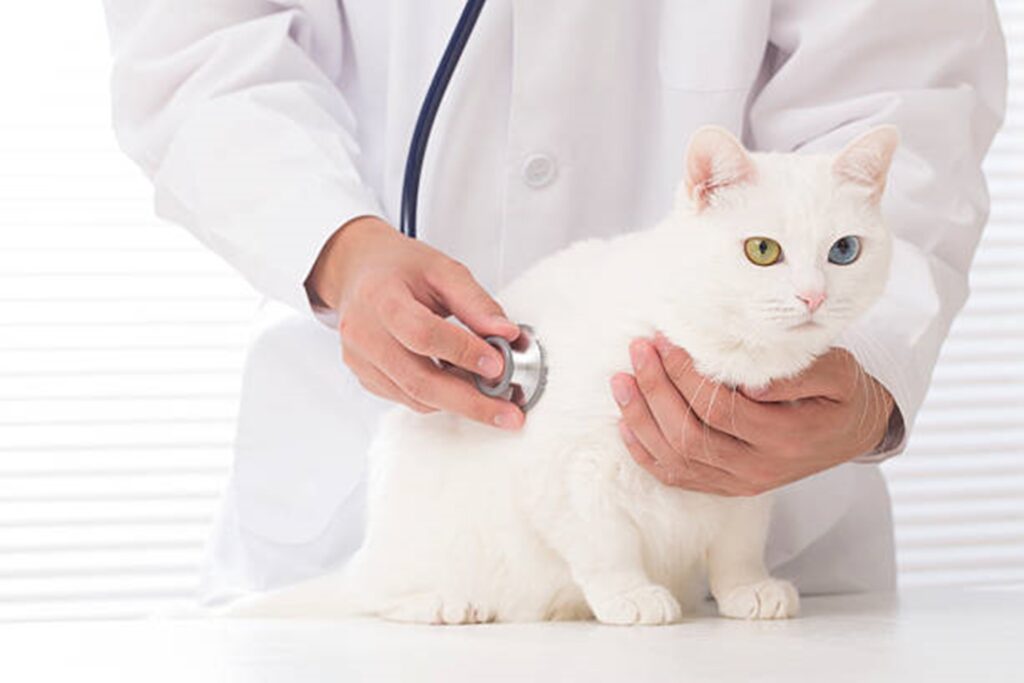Exotic pets are non-traditional animals that are kept as pets. They are often referred to as wild animals, which can include everything from reptiles and birds to small mammals and even insects. Exotic pets have been growing in popularity in recent years, with many people opting for these unique creatures as pets instead of more common household pets such as dogs or cats.
While exotic pets can make fascinating and interesting companions, they also come with their own set of unique challenges and risks. This is where pet insurance for exotic pets comes in.
Pet insurance for exotic pets is incredibly important because it provides financial protection in the event of unexpected accidents or illnesses. Unlike traditional pets, exotic pets may require specialized veterinary care from a veterinarian with experience in treating exotic species. This can be more expensive than care for a traditional pet, as it may require more specialized equipment, medications, and procedures.
Additionally, some exotic pets have longer lifespans than traditional pets, meaning that they may require more long-term care over time. With pet insurance for exotic pets, pet owners can rest assured that they will be able to provide their pets with the necessary care and treatment without worrying about the financial burden.
What is Pet Insurance for Exotic Pets?

Pet insurance for exotic pets refers to a type of insurance coverage designed to provide financial protection for pet owners who own non-traditional pets such as reptiles, birds, small mammals, and other exotic animals. This type of insurance can help pet owners cover the cost of veterinary bills in case their pets become sick, injured, or require emergency medical attention.
The types of exotic pets covered by pet insurance vary depending on the insurance provider. However, most pet insurance companies offer coverage for reptiles, birds, rabbits, rodents, and some types of exotic mammals. It is important to note that some companies may have exclusions for certain breeds or species of exotic pets, so it’s essential to read the policy terms and conditions before signing up for coverage.
Pet insurance for exotic pets typically offers several coverage options and benefits, including accident and illness coverage, wellness coverage, and routine checkups. Accident and illness coverage helps cover the cost of unexpected medical expenses related to accidents, injuries, and illnesses. Wellness coverage, on the other hand, provides coverage for preventive care, such as routine checkups, vaccinations, and other preventive treatments.
Other benefits of pet insurance for exotic pets may include coverage for medications, diagnostic tests, surgeries, and emergency care. Some pet insurance companies may also offer additional services such as behavioral therapy, boarding fees, and even cremation or burial expenses.
In conclusion, pet insurance for exotic pets can provide peace of mind to pet owners who own non-traditional pets. By offering various coverage options and benefits, pet insurance can help pet owners provide their pets with the care they need while also reducing the financial burden associated with unexpected veterinary bills.
Exotic pet insurance works the same way as a typical pet insurance plan. Plans typically cover costs related to your pet’s accidents and illnesses, such as vet exam fees, lab work and X-rays. Unlike human health insurance, you pay your vet directly at checkout and receive reimbursement from your provider later.
The main difference between standard pet insurance and exotic pet insurance is the type of animal covered. Below are common pets found in a pet insurance company’s “exotic” category:
- Amphibians
- Bearded dragons
- Birds
- Chameleons
- Chinchillas
- Ferrets
- Gerbils
- Goats
- Guinea pigs
- Hamsters
- Hedgehogs
- Iguanas
- Lizards
- Mice
- Other reptiles
- Pigs
- Rats
- Rabbits
- Snakes
- Sugar gliders
- Tortoises
- Turtles
How to Choose the Right Pet Insurance for Your Exotic Pet
Exotic pets, such as reptiles, birds, and small mammals, have specific health needs that differ from those of traditional pets like cats and dogs. Therefore, it’s essential to have insurance coverage that caters to these unique requirements. Here are some factors to consider when choosing pet insurance for your exotic pet:
- Species-specific coverage: Look for insurance policies that offer coverage specific to your exotic pet’s species. For example, a reptile owner would want insurance that covers veterinary visits, diagnostic tests, and treatments for common conditions such as respiratory infections, metabolic bone disease, and parasites.
- Comprehensive coverage: Ensure that the policy covers a wide range of veterinary expenses, including diagnostic tests, treatments, surgeries, and emergency care. It’s also essential to have coverage for chronic conditions, which can be expensive to manage over time.
- Premiums and deductibles: Compare the premiums and deductibles of different policies to find one that fits your budget. Keep in mind that lower premiums may come with higher deductibles or co-pays, which means you’ll pay more out-of-pocket when your pet needs medical care.
- Customer service and support: Check the reputation of the insurance provider for customer service and support. You’ll want a company that is responsive, helpful, and easy to work with when filing claims or answering questions.
What Does Exotic Pet Insurance Cover?
Exotic pet insurance policies cover similar procedures and treatments as those for cats and dogs. This means reimbursement for commonplace healthcare issues for reptiles, birds, rodents and more. As with typical pet insurance, coverage only includes accidents and illnesses. Preventive care, such as routine vet visits, is not covered. Preexisting conditions are also excluded.
Below are some of the things exotic pet insurance covers:
- Accidental injuries
- Chronic illnesses
- Common illnesses
- Hereditary issues
- Hospitalization procedures
- Lab work
- Serious illnesses
Here are some pet insurance providers that offer coverage for exotic pets:
- Nationwide: Nationwide offers coverage for exotic pets, including birds, reptiles, and small mammals. Their plans include coverage for exams, diagnostics, and treatments for illnesses and injuries, as well as prescription medications.
- ASPCA: ASPCA offers coverage for exotic pets, including birds, reptiles, and small mammals. Their plans cover accidents, illnesses, and hereditary conditions, as well as emergency care.
- Pet Assure: Pet Assure offers a discount program that provides savings on veterinary services for exotic pets. Their plans include coverage for routine care, such as exams and vaccinations, as well as emergency care.
In conclusion, choosing the right pet insurance for your exotic pet requires careful consideration of factors such as species-specific coverage, comprehensive coverage, premiums and deductibles, and customer service and support. Compare different insurance providers to find a policy that meets your pet’s needs and fits your budget.
Common Health Issues in Exotic Pets
Overview of Health Concerns in Exotic Pets:
Exotic pets, including reptiles, birds, and small mammals, have unique health needs that differ from those of traditional pets, such as dogs and cats. Because of this, exotic pets are susceptible to various health issues that can be difficult to diagnose and treat. Understanding the common health concerns of exotic pets is crucial for any pet owner to ensure their animal receives appropriate care.
Examples of Common Health Issues in Exotic Pets:
One common health issue among exotic pets is malnutrition. Many exotic pets have specialized diets that require specific nutrients and supplements to maintain proper health. Another issue is temperature regulation, as most exotic pets require specific temperature ranges to thrive. Improper temperature regulation can lead to health problems, such as respiratory infections or metabolic diseases.
Other common health issues in exotic pets include infectious diseases, dental problems, and parasitic infections. Reptiles, for example, are susceptible to bacterial infections, while birds are prone to respiratory diseases. Dental problems, such as overgrown teeth, are common among small mammals, while parasitic infections can affect all types of exotic pets.
Importance of Pet Insurance in Covering Unexpected Health Costs:
Due to the unique health concerns associated with exotic pets, veterinary care for these animals can be costly. Pet insurance is an excellent option to help mitigate these costs. Pet insurance for exotic pets typically covers veterinary visits, diagnostic tests, medications, and surgeries. With pet insurance, exotic pet owners can feel more financially secure in the event of unexpected health issues.
In addition, some pet insurance companies offer wellness plans that cover routine check-ups and preventative care, such as parasite testing and vaccinations. These plans can help pet owners stay proactive about their pet’s health and prevent potential health issues from arising.
Overall, understanding the common health concerns of exotic pets and investing in pet insurance can help exotic pet owners provide the best care for their pets and ensure they remain healthy and happy.
Frequently Asked Questions About Pet Insurance for Exotic Pets

What types of exotic pets can be covered by pet insurance?
Pet insurance for exotic pets can cover a variety of animals such as birds, reptiles, rodents, and even some small mammals like hedgehogs and sugar gliders. However, it’s important to check with the insurance provider to see which specific exotic animals they cover.
What does pet insurance for exotic pets typically cover?
Pet insurance for exotic pets can cover veterinary expenses such as routine check-ups, illnesses, injuries, and even surgery. Some plans may also cover the cost of emergency care or alternative therapies like acupuncture or chiropractic care.
How much does pet insurance for exotic pets cost?
The cost of pet insurance for exotic pets can vary depending on several factors including the type of animal, the coverage amount, and the insurance provider. Generally, the cost of pet insurance for exotic pets is higher than for more traditional pets like dogs and cats.
How Much Does Exotic Pet Insurance Cost?
Exotic pet insurance costs the same as standard pet insurance. The monthly premium can range from $10 to $100. The type of pet you want to cover, your location, reimbursement percentage, deductible, wellness add-ons, and pet’s age and breed all influence price.
Are pre-existing conditions covered by pet insurance for exotic pets?
Most pet insurance providers do not cover pre-existing conditions, and this includes pet insurance for exotic pets. It’s important to read the policy terms and conditions carefully to understand what is and isn’t covered.
How do I choose the best pet insurance plan for my exotic pet?
When choosing a pet insurance plan for your exotic pet, it’s important to consider factors such as coverage options, cost, and the reputation of the insurance provider. It’s also a good idea to compare multiple plans and read reviews from other pet owners to make an informed decision.
Conclusion:
In conclusion, pet insurance for exotic pets is incredibly important for pet owners to consider. These animals often require specialized care and treatment, which can be expensive and difficult to obtain without adequate coverage. By investing in pet insurance, exotic pet owners can have peace of mind knowing that their beloved pets will receive the care they need without breaking the bank.
As a final thought, we strongly recommend that all pet owners of exotic animals explore their pet insurance options and choose a plan that meets their pet’s unique needs. By doing so, you can provide your pet with the best possible care and ensure that they lead happy and healthy lives.
